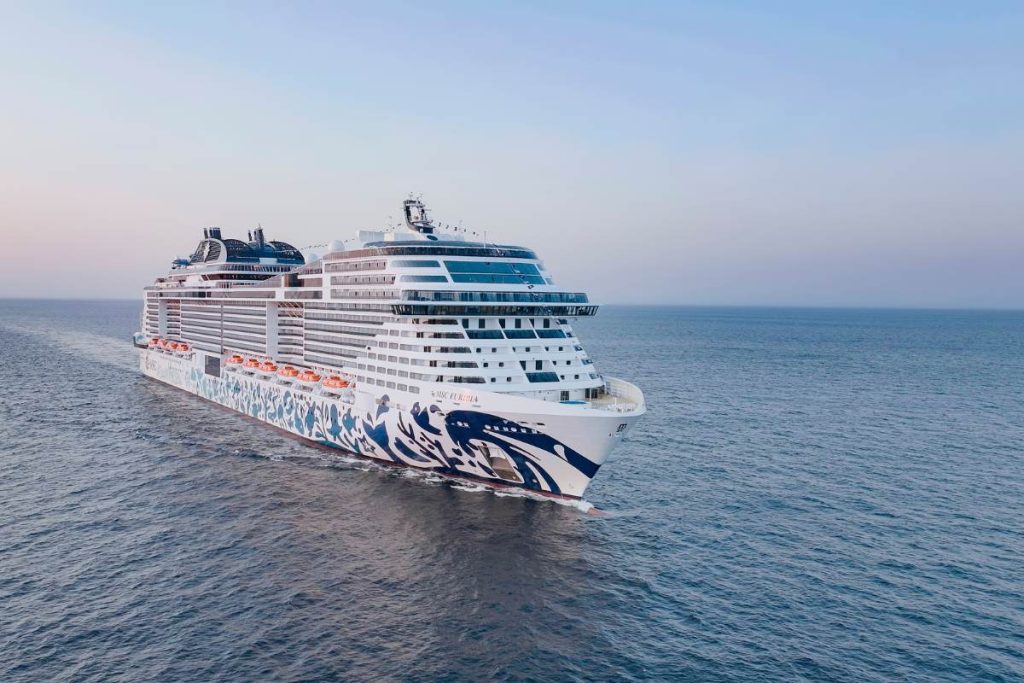MSC Cruises has unveiled crucial insights from its revolutionary net-zero emissions voyage, highlighting the feasibility of sustainable cruising advancements.
The MSC Euribia’s journey represents a pivotal development in reducing environmental impact within the cruising sector, forecasting future opportunities for green travel.
MSC Cruises has made notable progress with its net-zero greenhouse gas emissions cruise, demonstrated during a four-day voyage on the MSC Euribia last June. The journey marked a significant advancement in sustainable cruising, showcasing that net-zero emissions are feasible well ahead of the 2050 industry target. This initiative employed a digital twin of the LNG-powered ship, providing a robust platform for data analysis and performance evaluation.
Sophisticated energy efficiency measures were central to the success of the MSC Euribia’s voyage. Through strategic management of speed profiles, routing, and engine configurations, the ship achieved remarkable fuel savings, ultimately conserving 43 tonnes of fuel. These practices highlight an innovative approach to reducing energy consumption by keeping the ship operating on a maximum of two engines, thereby minimizing emissions and enhancing efficiency.
MSC Euribia implemented an advanced heat recovery system. This sustainability-focused mechanism utilized waste heat from the ship’s engines to meet all onboard heating needs, including galleys and hot water systems. This not only lowered energy demands but also exemplified the integration of eco-friendly technologies to promote environmental stewardship in cruising.
A strategic partnership has been established between MSC and Gasum to access liquefied synthetic gas (e-LNG). This agreement signifies a firm commitment to alternative fuel sources, pivotal to the future of cruising. MSC’s vice-president of sustainability, Linden Coppell, emphasized the need for increased supplier participation, underscoring the industry’s readiness to embrace cleaner fuel solutions and to accelerate the transition to net-zero operations.
The trajectory toward net-zero operations extends beyond fuel innovations. MSC is intensifying its shore power plan, integrating at least 15 new ports by 2024, enabling vessels to connect to shoreside electricity grids. This development indicates a broader commitment to sustainable practices in maritime operations.
Michele Francioni, MSC Group’s senior vice-president, calls for governmental and international support in promoting technological advancements and renewable fuel availability. According to Francioni, achieving consistent net-zero emissions requires concerted efforts across the industry and beyond. The digital twin success aboard MSC Euribia sets a benchmark for future sustainability initiatives, providing a template for operational adjustments across MSC’s entire fleet.
MSC Cruises intends to utilise data from the MSC Euribia experiment to refine and enhance existing vessels. This approach underscores the company’s commitment to ongoing learning and application of insights that advance sustainable cruising. By benchmarking these results, MSC aims to deliver subsequent LNG vessels that align with their environmental objectives.
MSC Cruises’ strides in sustainable maritime operations set a precedent for the industry’s future.
Through innovation and collaboration, the cruise sector can advance towards achieving comprehensive net-zero emissions.

